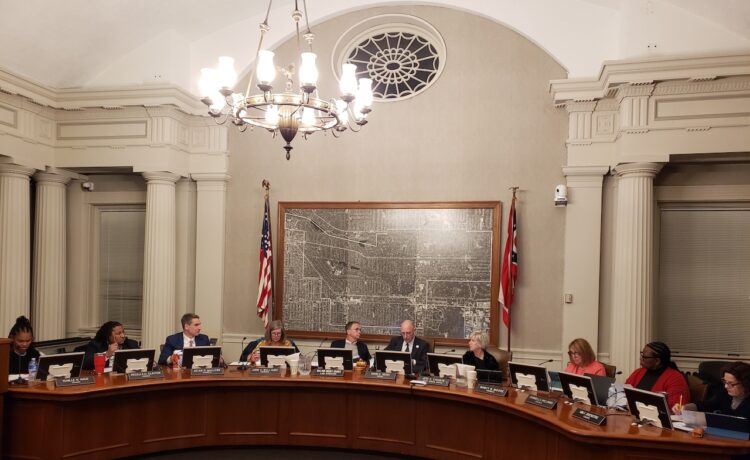SHAKER HEIGHTS, Ohio — City Council last month authorized the release of about $500,000 from local and federal Law Enforcement Trust Funds for the police department.
Some of those funds are carried over from initiatives that council approved last year through the same program, which sets aside task force forfeiture money to be distributed among participating states and cities.
“The federal system says that within three years of receiving those funds, they would like to see them (spent on) some type of community use,” Police Chief Wayne Hudson told council Jan. 27.
Of the roughly $150,000 for projects that council signed off on last year, Hudson explained that “for various reasons, we couldn’t get to them, so we’re asking council to approve those again.”
At least another $200,000 will be going toward new projects in 2025, with another $100,000 again targeted for community engagement.
“That’s something else we did last year, and I think out of that $100,000, we spent close to $80,000 on different community events, including teen summits,” Hudson said.
In a memo to council, Hudson noted that last year’s Listening Project on local policing initiatives showed that the public wanted more engagement.
With that in mind, Hudson said he and the department will be “launching a new community policing and outreach philosophy in 2025.”
The initiative is designed to build “meaningful relationships between Shaker Heights police and residents, workers and visitors.”
Police also plan to collaborate with a local organization “whose mission is supportive and consistent with the department in the area of juvenile crime prevention and intervention.”
Another priority coming out of the Listening Project was the community’s desire for more traffic enforcement and safety initiatives around town.
To that end, another $30,000 in Law Enforcement Trust Funds will be used to pay overtime for drug and traffic training and enforcement operations.
Also under training, council approved a $50,000 line item for virtual reality (VR) goggles, part of a new statewide program to assist officers with both deadly and non-deadly force scenarios.
After considerable debate last year, council unanimously approved another $22,000 for a second drone, which also carries a $7,800-a-year operational cost.
Hudson cited several successful deployments with the city’s first drone last year, from tracking missing persons to apprehending theft suspects hiding in the area of Scottsdale Boulevard and Ludgate Road.
He added that a second drone would ensure maximum coverage on both the east and west sides of town and provide benefits at large-scale events.
As for some of the items carried over from last year’s Law Enforcement Trust Fund allocations, Hudson is still looking for a $15,000 pole camera to help monitor areas where crime may be increasing.
Other carryovers include soundproofing of police interview rooms ($25,000), a scientific investigative unit ($35,000), license plate scanner ($13,400), conference room audio and video upgrade ($10,000) and training room equipment ($40,000).
The memos also showed that with $386,000 drawn from the Federal Law Enforcement Trust Fund, the balance would remain at nearly $199,000.
In the separate Local Law Enforcement Trust Fund, a $100,000 withdrawal will leave a balance of nearly $74,000 — at least until both funds are replenished.
Hudson added that these requests are typically done outside of annual budget hearings, so as not to supplant the city’s appropriations with federal and local law enforcement proceeds.
Read more from the Sun Press.













